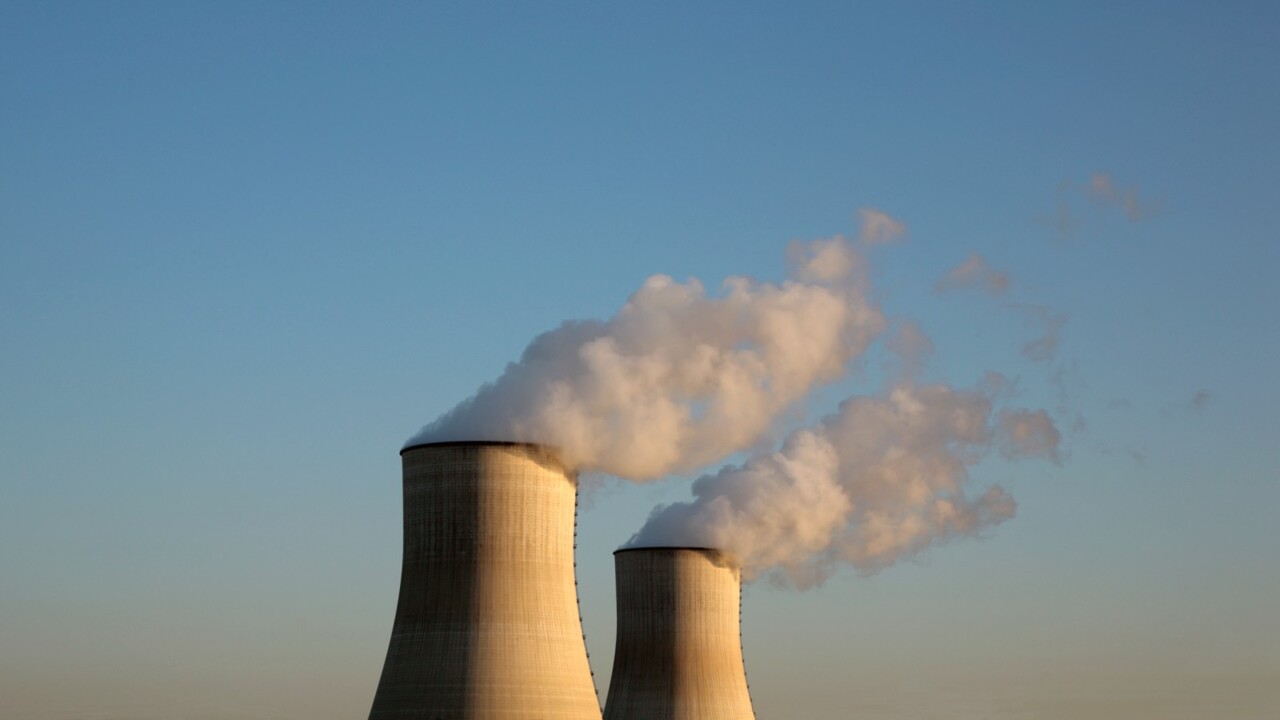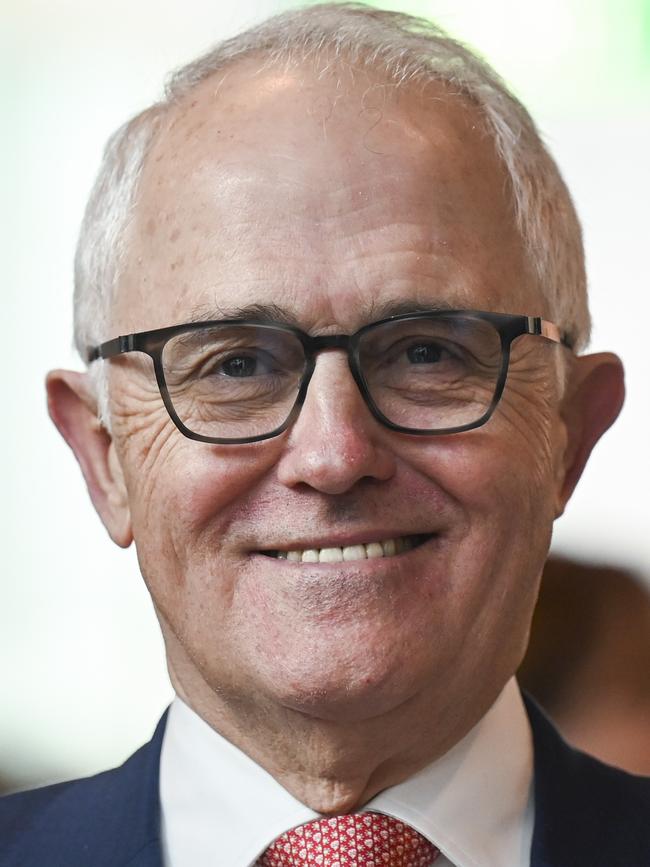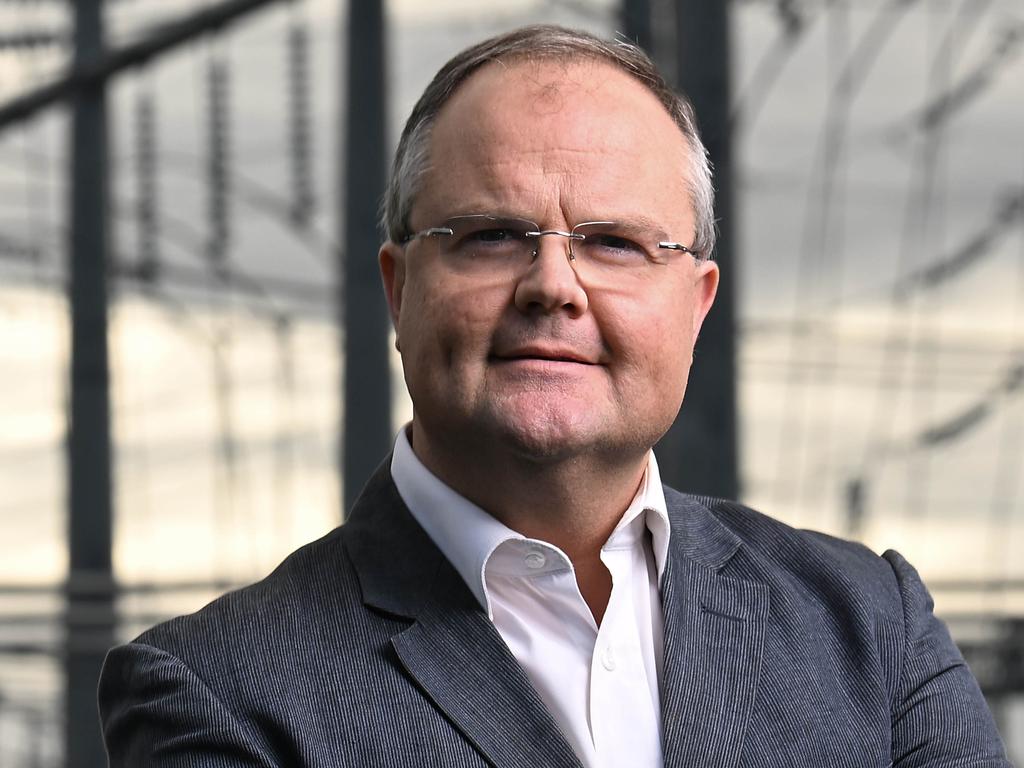Renewable energy industry vows to press ahead despite nuclear power ‘distraction’
Climate change disagreement clouds Australia’s energy landscape but renewable players vow to accelerate development despite talk of nuclear power disrupting their plans.

The renewable energy sector has conceded it was resigned to not having bipartisan political support for the industry but said it had the backing of state governments to push ahead with large-scale green projects.
Clean energy developers told a major industry conference they will press on and accelerate the development of new zero emission energy sources despite what they deemed the “distraction” of a nuclear energy policy advocated by the Coalition.
Neoen, one of Australia’s largest renewable energy developers, said it did not have across the board political support but said the industry had the backing of the states, which was critical.
“We’ve been through these cycles so many times. Sure bipartisan support would be nice but we are not going to get that,” said Neoen’s head of origination Megan Ward. “Here we are. The states are getting on with the job and so are we.”
The country’s market operator estimates about 6 gigawatts of new capacity must be added each year, a target that is about double the pace Australia is currently installing new generation.
Developers also point the finger of blame at planning delays, with new wind farms often taking years to secure approvals.
NSW – widely seen as the worst jurisdiction for delays – will soon announce updated guidelines, state Energy minister Penny Sharpe said.
Ms Sharpe told the summit that the state was making good progress with its ambitious goals to rapidly transform its electricity grid to one dominated by renewables. “We have momentum, we are delivering on the road map,” Ms Sharpe said.
While the renewable energy industry insists it is making the progress needed, the opposition says Australia is risking its future by committing to an economy nearly all powered by zero-emission sources.

Opposition energy spokesman Ted O’Brien said Australia’s future prosperity was at risk, and allowing baseload power to close prematurely was exacerbating the crisis.
“We have a black hole. We are running out of energy, which is why you don’t close one system down without having another ready to go,” he said.
Mr O’Brien’s comments hint that the Coalition, if elected, would slow the closure of coal power stations.
The Australian Energy Market Operator expects all coal power stations will be closed by 2037, when the Coalition expects the first of its seven planned power stations to be ready.
Delaying coal closures would require the government to underwrite corporate losses incurred.
Coal power stations are increasingly unprofitable as a rapid influx of rooftop solar pushes prices during the day into negative territory.
Energy policy shapes as the battleground issue for a federal election due by May 2025.
The federal government has insisted its policy of having renewable energy provide 82 per cent of Australia’s electricity by 2030 will be delivered, a claim rejected by the Coalition – which insists the only viable solution is a suite of nuclear power stations.
The divergent policy visions cloud the investment decisions of renewable energy developers, but they have vowed to press on, insisting the debate – while noisy – will do little to quell the irreversible path towards zero emission sources.
But the Coalition’s vision for nuclear power has drawn criticism from Australia’s energy industry, questioning whether the fuel source could be delivered in time when so many coal power stations are so old that many may not be able to be extended.
Critics are increasingly sharpening their condemnation, including former prime minister Malcolm Turnbull who said the Coalition’s policy was not grounded in reality.
“I can tell you that for the nine years that the Coalition government was in power, under Abbott, myself and Morrison, the only people who talked about nuclear power in Australia were on the nuttier fringe,” Mr Turnbull said.

However, the Coalition’s policy is showing signs of wooing ever larger sections of the community. The Coalition insists its plan will lower power prices and avoid the need for tens of thousands of kilometres of new high-voltage power lines.
Transmission shapes as the biggest bottleneck to Australia’s transition to renewables.
Nearly 20 per cent of Australia’s most advanced renewable developments, with a combined capacity larger than the country’s biggest coal power station, have experienced delays within the last year – analysis conducted by The Australian earlier this year shows.
Analysis shows 15 of the 79 new energy projects considered by the Australian Energy Market Operator to be so advanced that development is essentially assured to have experienced delays. The combined capacity of the 15 projects are nearly 3.5GW, which is substantially larger than Origin’s Eraring coal power station.
While many of the delays were just a couple of months, some were in excess of a year. The longest delay noted was ACEnergy’s battery in Victoria which is now set to be operational in January 2026, having been earmarked last year for completion in June 2024.
Industry sources said the delays were the result of inflationary pressures, which have increased the costs of projects, planning holdups, transmission build issues and policy decisions.
AEMO estimates the country needs 57GW of grid-scale solar and wind generation capacity to be installed by 2030 – a rise from the current capacity of 19GW.
Australia – one of the world’s largest per capita emitters – and environmental advocates insist renewables are the only viable alternative to replace the country’s fleet of coal power stations, many of which are approaching the end of their technical lifespan.






To join the conversation, please log in. Don't have an account? Register
Join the conversation, you are commenting as Logout